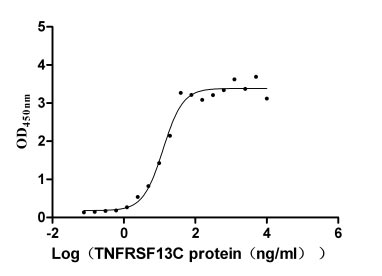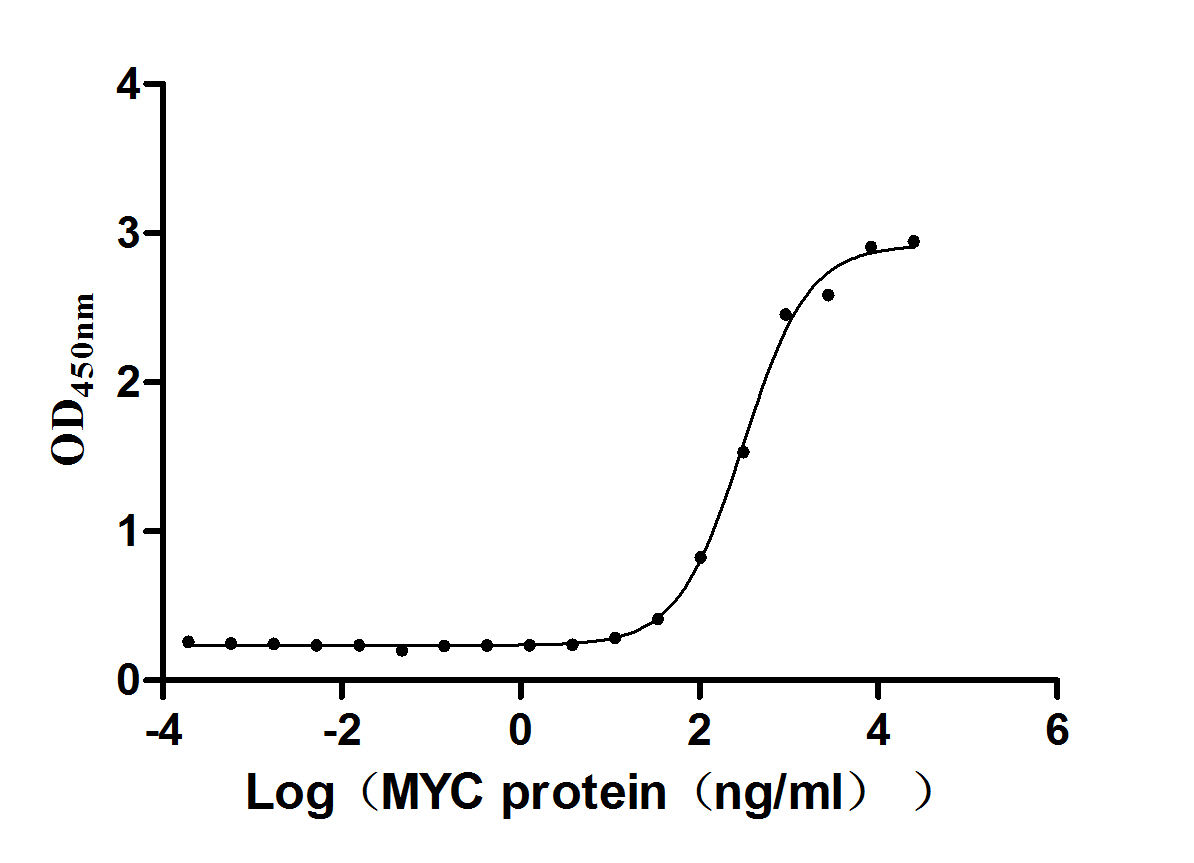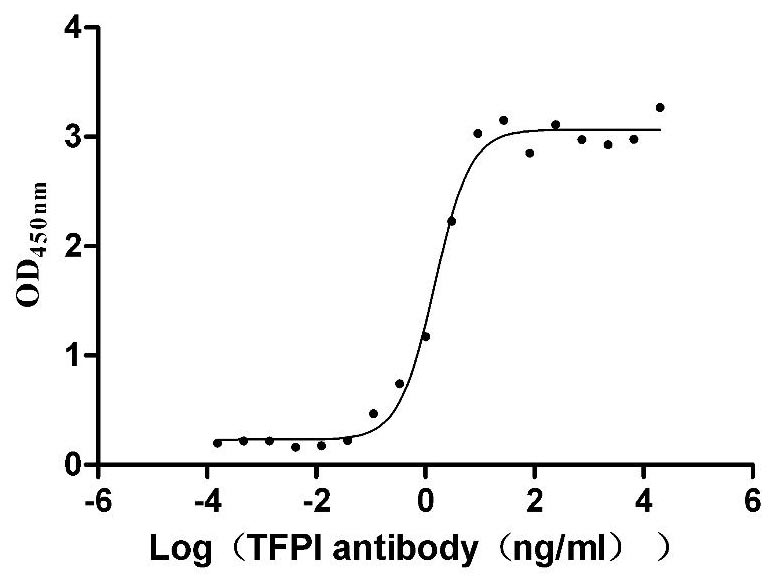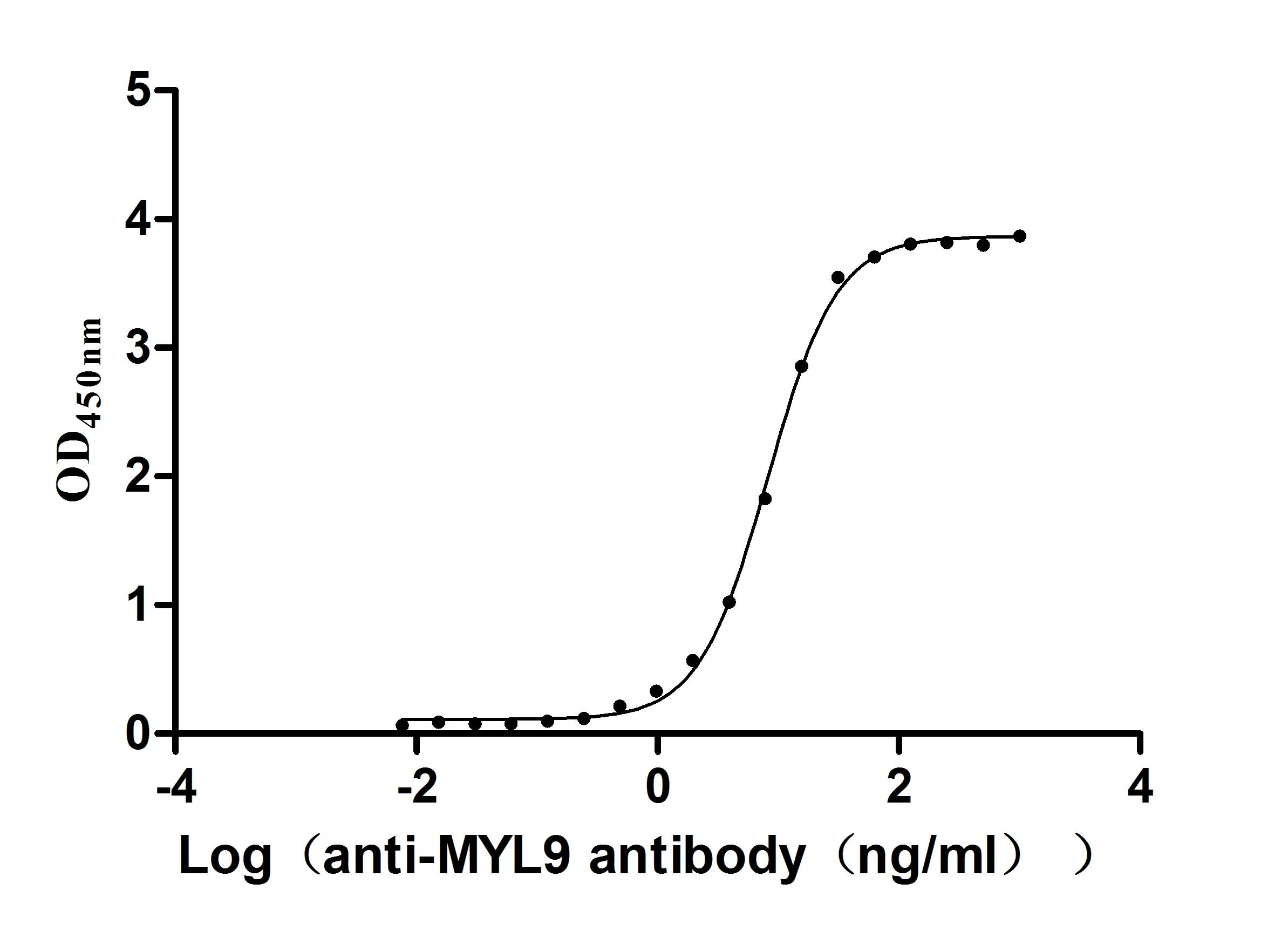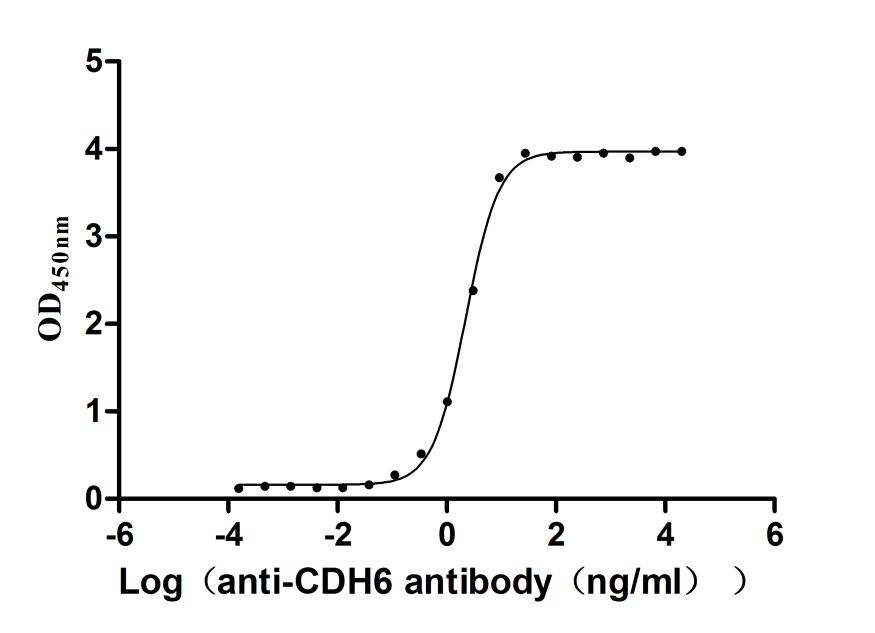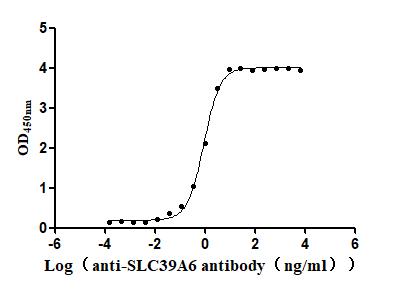Recombinant Human Major facilitator superfamily domain-containing protein 2A (MFSD2A), partial
-
货号:CSB-YP847667HU
-
规格:
-
来源:Yeast
-
其他:
-
货号:CSB-EP847667HU
-
规格:
-
来源:E.coli
-
其他:
-
货号:CSB-EP847667HU-B
-
规格:
-
来源:E.coli
-
共轭:Avi-tag Biotinylated
E. coli biotin ligase (BirA) is highly specific in covalently attaching biotin to the 15 amino acid AviTag peptide. This recombinant protein was biotinylated in vivo by AviTag-BirA technology, which method is BriA catalyzes amide linkage between the biotin and the specific lysine of the AviTag.
-
其他:
-
货号:CSB-BP847667HU
-
规格:
-
来源:Baculovirus
-
其他:
-
货号:CSB-MP847667HU
-
规格:
-
来源:Mammalian cell
-
其他:
产品详情
-
纯度:>85% (SDS-PAGE)
-
基因名:MFSD2A
-
Uniprot No.:
-
别名:1700018O18Rik; FLJ14490; FLJ35904; Major facilitator superfamily domain containing 2; Major facilitator superfamily domain containing 2A; Major facilitator superfamily domain-containing protein 2A; MFS2A_HUMAN; MFSD2; MFSD2A; RGD1310174; RP23-121J14.3
-
种属:Homo sapiens (Human)
-
蛋白长度:Partial
-
蛋白标签:Tag type will be determined during the manufacturing process.
The tag type will be determined during production process. If you have specified tag type, please tell us and we will develop the specified tag preferentially. -
产品提供形式:Lyophilized powder
Note: We will preferentially ship the format that we have in stock, however, if you have any special requirement for the format, please remark your requirement when placing the order, we will prepare according to your demand. -
复溶:We recommend that this vial be briefly centrifuged prior to opening to bring the contents to the bottom. Please reconstitute protein in deionized sterile water to a concentration of 0.1-1.0 mg/mL.We recommend to add 5-50% of glycerol (final concentration) and aliquot for long-term storage at -20℃/-80℃. Our default final concentration of glycerol is 50%. Customers could use it as reference.
-
储存条件:Store at -20°C/-80°C upon receipt, aliquoting is necessary for mutiple use. Avoid repeated freeze-thaw cycles.
-
保质期:The shelf life is related to many factors, storage state, buffer ingredients, storage temperature and the stability of the protein itself.
Generally, the shelf life of liquid form is 6 months at -20°C/-80°C. The shelf life of lyophilized form is 12 months at -20°C/-80°C. -
货期:Delivery time may differ from different purchasing way or location, please kindly consult your local distributors for specific delivery time.Note: All of our proteins are default shipped with normal blue ice packs, if you request to ship with dry ice, please communicate with us in advance and extra fees will be charged.
-
注意事项:Repeated freezing and thawing is not recommended. Store working aliquots at 4°C for up to one week.
-
Datasheet :Please contact us to get it.
相关产品
靶点详情
-
功能:Sodium-dependent lysophosphatidylcholine (LPC) symporter, which plays an essential role for blood-brain barrier formation and function. Specifically expressed in endothelium of the blood-brain barrier of micro-vessels and transports LPC into the brain. Transport of LPC is essential because it constitutes the major mechanism by which docosahexaenoic acid (DHA), an omega-3 fatty acid that is essential for normal brain growth and cognitive function, enters the brain. Transports LPC carrying long-chain fatty acids such LPC oleate and LPC palmitate with a minimum acyl chain length of 14 carbons. Does not transport docosahexaenoic acid in unesterified fatty acid. Specifically required for blood-brain barrier formation and function, probably by mediating lipid transport. Not required for central nervous system vascular morphogenesis. Acts as a transporter for tunicamycin, an inhibitor of asparagine-linked glycosylation. In placenta, acts as a receptor for ERVFRD-1/syncytin-2 and is required for trophoblast fusion.
-
基因功能参考文献:
- In offspring of women with gestational diabetes mellitus treated either with diet or insulin, higher fetal fat accretion and lower placental MFSD2a contribute to reduce docosahexaenoic acid availability. PMID: 26869380
- Levels of DHA-derived epoxides are lower in colon tissues from patients with ulcerative colitis than healthy and resolving mucosa. Production of these metabolites by gut endothelium requires MFSD2A; endothelial progenitor cells that overexpress MFSD2A reduce colitis in mice. PMID: 28827082
- The regulatory role of Mfsd2a deepens our knowledge of the function of the BBB, potentially contributing to the effective drug delivery in the treatments for neurodegenerative diseases, brain tumors, and life-threatening infections in the CNS PMID: 26747400
- MFSD2A transported structurally related acylcarnitines but not a lysolipid without a negative charge, demonstrating the necessity of a negatively charged headgroup interaction with Lys-436 for transport. PMID: 26945070
- A homozygous mutation affecting a highly conserved MFSD2A residue (p.Ser339Leu) is associated with a progressive microcephaly syndrome characterized by intellectual disability, spasticity and absent speech. PMID: 26005865
- MFSD2A mutations impair brain lipid transport activity. PMID: 26005868
- Several tagging SNPs and haplotypes in TRIT1, MYCL1 and MFSD2A region are significantly associated with risk and clinicopathological features of gastric cancer in a Chinese population. PMID: 23349019
- Importance of MFSD2a in trophoblast fusion and placenta development. PMID: 23177091
- SNP rs12072037 modulates MFSD2A promoter activity and thus might affect MFSD2A levels in normal lung and in lung tumors. PMID: 21736709
- MFSD2A is a putative Tunicamycin transporter at the plasma membrane. PMID: 21677192
- MFSD2A is a novel lung cancer tumor suppressor gene that regulates cell cycle progression and matrix attachment. PMID: 20236515
- three additional SNPs in the MFSD2 genes showed ethnic differences in allelic frequencies PMID: 17145094
- Results identify Mfsd2a (major facilitator superfamily domain-containing protein 2a) and an additional closely related protein Mfsd2b, and suggest that Mfsd2a plays a role in adaptive thermogenesis. PMID: 18694395
- MFSD2 is a placenta-specific receptor for the fusogenic, endogenous retrovirus-derived, human syncytin-2, and plays a role in placenta morphogenesis. PMID: 18988732
显示更多
收起更多
-
相关疾病:Microcephaly 15, primary, autosomal recessive (MCPH15)
-
亚细胞定位:Cell membrane; Multi-pass membrane protein. Endoplasmic reticulum membrane; Multi-pass membrane protein.
-
蛋白家族:Major facilitator superfamily
-
组织特异性:In placenta, associated with trophoblast cells.
-
数据库链接:
HGNC: 25897
OMIM: 614397
KEGG: hsa:84879
STRING: 9606.ENSP00000361895
UniGene: Hs.655177
Most popular with customers
-
Express system: Mammalian cell
Species: Homo sapiens (Human)
-
Recombinant Human papillomavirus type 16 Protein E7 (E7) (Active)
Express system: E.coli
Species: Human papillomavirus type 16
-
Recombinant Human Tissue factor pathway inhibitor (TFPI), partial (Active)
Express system: Mammalian cell
Species: Homo sapiens (Human)
-
Recombinant Human Myosin regulatory light chain 12B(MYL12B) (Active)
Express system: E.coli
Species: Homo sapiens (Human)
-
Recombinant Macaca fascicularis Cadherin 6(CDH6),partial (Active)
Express system: Mammalian cell
Species: Macaca fascicularis (Crab-eating macaque) (Cynomolgus monkey)
-
Recombinant Macaca fascicularis Zinc transporter ZIP6 isoform X1(SLC39A6),partial (Active)
Express system: Baculovirus
Species: Macaca fascicularis (Crab-eating macaque) (Cynomolgus monkey)


